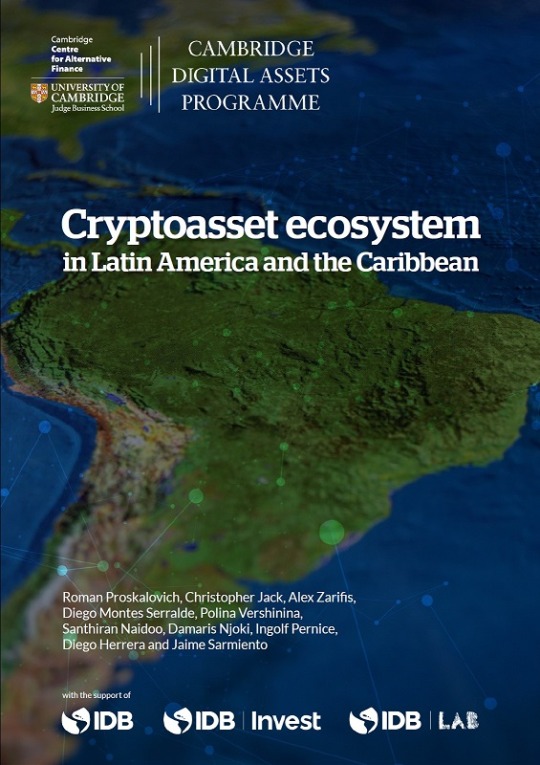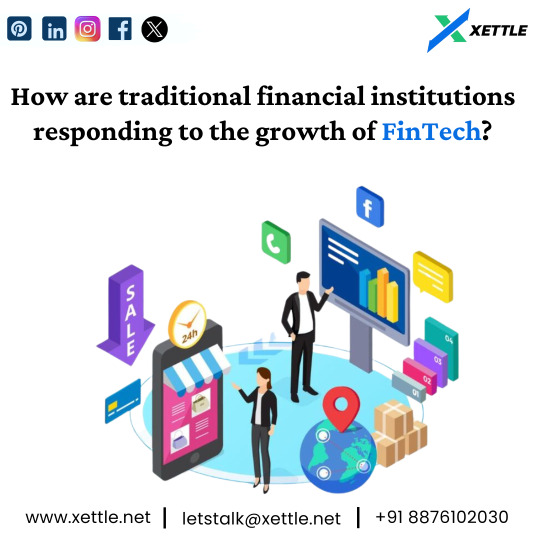#IT Service Providers for Fintech firms
Explore tagged Tumblr posts
Text
Best Ecommerce Solutions for Startups and Retail Businesses in Vavuniya
In today’s digital world, having a strong online presence is essential for any business looking to grow. Whether you're a startup or a retail store in Vavuniya, the right ecommerce solution can help you reach more customers, increase sales, and streamline operations.
If you're looking for a complete ecommerce solution in Vavuniya, partnering with an expert ecommerce solution provider ensures a hassle-free setup and smooth management of your online store.
Why Choose an Ecommerce Solution for Your Business?
Setting up an online store involves more than just creating a website. A complete ecommerce business solution in Vavuniya includes everything from website development to secure payment gateways and order management systems. Here’s why businesses in Vavuniya are shifting towards ecommerce:
Wider Customer Reach: Sell beyond local markets and attract customers from different regions.
24/7 Availability: Unlike physical stores, an ecommerce website allows customers to shop anytime, increasing sales opportunities.
Cost-Effective Operations: Reduce overhead costs and automate processes like inventory management and customer support.
Seamless Customer Experience: A well-designed online store enhances user experience, boosting customer satisfaction and retention.
Ecommerce Solutions for Retail in Vavuniya
Retail businesses in Vavuniya can benefit from customized ecommerce solutions that cater to their specific needs. Whether you run a clothing store, electronics shop, or grocery business, a reliable ecommerce solution provider company in Vavuniya can help you:
Build an easy-to-use online store.
Integrate secure payment gateways.
Implement inventory and order tracking systems.
Optimize the store for mobile and SEO for better reach.
Choosing the Right Ecommerce Solution Provider in Vavuniya
When selecting an ecommerce solution provider, consider the following factors:
Customization Options: Ensure the solution fits your business needs and brand identity.
Scalability: Choose a provider that allows you to expand as your business grows.
Security Features: Protect customer data with secure payment and cybersecurity measures.
Ongoing Support: A good provider offers technical support and regular updates to keep your store running smoothly.
Take Your Business Online Today!
If you’re looking for the best ecommerce solution for startups in Vavuniya, now is the time to take action. A professional ecommerce solution provider can help you launch and manage a successful online business with ease.
Get started today and transform your retail business with the power of ecommerce!
#Digital Marketing Agencies#Digital Marketing Company#IT Service Providers for Fintech Companies#IT Service Providers for Fintech Development#IT Service Providers for Fintech firms#IT Service Providers for Fintech Technology#IT Service Providers for Fintech Enterprises#IT solution provider company#Ecommerce Solution for Startup#Mobile App Development
0 notes
Text
From Casinos to Crypto: How Las Vegas Became a Blockchain Innovation Hub

Las Vegas, long synonymous with its iconic casinos and vibrant entertainment, is now emerging as an unexpected hub for blockchain innovation. Inspired by the gaming industry’s need for security, transparency, and enhanced user experiences, the city is becoming a leader in fintech applications powered by blockchain. This transformation is driving the convergence of technology, finance, and entertainment, paving the way for the city’s tech-driven future. Fifteen years ago, in 2010, 10,000 Bitcoin was used to purchase two pizzas, a transaction that marked the first real-world use of the cryptocurrency. At the time, Bitcoin was practically worthless. Fast forward to today, and the value of Bitcoin has skyrocketed. Now, selling just 33 Bitcoin could buy you a $3 million penthouse at the prestigious Four Seasons Private Residences in Las Vegas. This dramatic shift highlights not only Bitcoin’s meteoric rise but also redefining how wealth and assets are exchanged in a tech-driven world.
1. Blockchain Integration in Las Vegas
Resorts World Las Vegas
Resorts World Las Vegas is a prime example of how casinos are embracing blockchain technology and digital currencies.
Crypto Payments: The casino allows customers to use Bitcoin and Ethereum for hotel bookings, dining, and other services, partnering with Gemini, a regulated crypto exchange.
Cashless Gaming: Patrons can use mobile wallets instead of carrying physical cash. This not only enhances convenience but also increases transaction security, reducing risks of theft or fraud.
Wynn Las Vegas
Wynn Las Vegas has partnered with fintech firms to explore blockchain-based loyalty rewards programs. Customers can earn digital tokens tied to casino activities, which can be redeemed for hotel stays, entertainment, or dining experiences.
Case Study: Blockchain for Fair Play
A notable example of blockchain in casinos is FunFair Technologies, a platform that offers decentralized casino solutions using Ethereum smart contracts. While not exclusive to Las Vegas, FunFair’s model ensures provable fairness by publishing game outcomes on the blockchain, making it impossible for casinos to manipulate results.
Such innovations are being tested in Las Vegas-style gaming platforms globally, showing how blockchain can build trust between casinos and players.
Casinos in Las Vegas Accepting Bitcoin for Payments
Golden Gate Hotel & Casino
Location: 1 Fremont Street, Las Vegas, NV 89101
Details: As the oldest casino in Las Vegas, Golden Gate accepts Bitcoin for hotel bookings, dining, and gift shop purchases.
Note: Bitcoin is not accepted for gambling activities but can be converted to U.S. dollars for gaming.
The D Las Vegas Hotel & Casino
Location: 301 Fremont Street, Las Vegas, NV 89101
Details: The D Las Vegas allows Bitcoin payments for hotel rooms, dining, and merchandise at its gift shop.
Note: Bitcoin cannot be used directly for gambling but works for other non-gaming services.
Resorts World Las Vegas
Location: 3000 Las Vegas Blvd S, Las Vegas, NV 89109
Details: Resorts World has partnered with Gemini, a cryptocurrency platform, to accept Bitcoin for hotel stays, dining, and select retail purchases.
Innovation: The resort also offers cashless gaming solutions, making it one of the most tech-forward destinations on the Strip.
2. Fintech Innovations Inspired by Gaming
The gaming industry’s push for seamless, secure, and engaging user experiences has inspired broader fintech applications.
Cashless Gaming Solutions
Casinos like The Venetian and MGM Grand have integrated cashless payment systems. Platforms such as Sightline Payments provide mobile wallets for gaming, dining, and retail, eliminating the need for physical cash.
These systems use fintech innovations like real-time payment settlement and biometric security for user verification, enhancing both speed and safety.
Gamification in Fintech
Gamification—using game-like elements in financial services—draws heavily from the gaming industry’s playbook.
Example: Robinhood: The stock trading app uses gamified features such as streaks, confetti animations, and rewards to engage users.
Las Vegas Influence: Gaming incentives and loyalty programs serve as inspiration for fintech apps offering rewards for saving, spending, or investing responsibly.
Case Study: The Link Between Casinos and Fintech Apps
Las Vegas casinos often deploy advanced AI-powered analytics to predict player behavior and optimize incentives. This same data-driven approach is now being used in fintech apps like Acorns and Stash, which offer personalized financial advice and savings plans based on user habits.
3. Las Vegas-Based Blockchain Gaming Companies
Infinite Games
Las Vegas-based Infinite Games is pioneering blockchain integration in mobile and online gaming:
NFT Ownership: Players can own in-game items as NFTs (non-fungible tokens), enabling trade and resale across different platforms.
Player Economy: By using blockchain, Infinite Games creates decentralized gaming economies where players can monetize their skills and assets.
PLAYSTUDIOS
PLAYSTUDIOS, famous for its loyalty-based mobile games, is exploring blockchain to make rewards more transparent and tradable:
Blockchain allows digital tokens to replace traditional rewards points. Players can transfer, sell, or redeem tokens in ways not previously possible.
Emerging Companies in the Sector
Startups like Decentral Games are pushing the boundaries by creating virtual casinos in the metaverse, powered by blockchain and cryptocurrencies.
Players can visit virtual versions of Las Vegas casinos, bet using digital assets, and enjoy provably fair gameplay.
4. Future Prospects for Blockchain in Las Vegas
Las Vegas’s integration of blockchain technology points toward a future that is both innovative and economically diverse.
Enhanced Security and Transparency
Blockchain creates an immutable ledger for transactions, making gaming and financial processes tamper-proof and transparent.
For example, blockchain is being explored to log all bets, winnings, and payouts, ensuring trust between players and casinos.
Blockchain for Tourism and Hospitality
The Las Vegas tourism industry can leverage blockchain for smart contracts in hotel bookings, event tickets, and tours.
For instance, a blockchain-based booking platform could eliminate intermediaries like OTAs (Online Travel Agencies), offering tourists lower costs and direct transparency.
Economic Diversification
By embracing blockchain technology, Las Vegas is diversifying its economy beyond casinos and entertainment:
Tech Startups: The city’s business-friendly policies are attracting fintech and blockchain startups.
Investors and Talent: Las Vegas is becoming a hub for blockchain conferences like Money 20/20, drawing global investors and tech talent.
Conclusion
Las Vegas’s journey from a global gaming capital to a blockchain innovation hub is a testament to its ability to adapt and evolve. By integrating blockchain into its casino operations, the city is setting new standards for transparency, security, and user engagement in gaming and fintech. From cashless gaming solutions to decentralized casinos, Las Vegas serves as both a case study and a blueprint for other cities looking to harness the power of blockchain.
Platforms like RealOpen are now facilitating real estate purchases using Bitcoin, Ethereum, and other cryptocurrencies. These platforms convert crypto to cash en route to escrow, allowing buyers to purchase any property, even if the seller isn’t crypto-friendly. For example, crypto enthusiasts can test these innovations by using Bitcoin to purchase luxury properties, including a Trump Las Vegas condos for sale. This seamless process allows digital asset holders to invest directly into the Las Vegas real estate market, turning crypto wealth into tangible luxury assets.
As fintech innovations inspired by the gaming industry continue to grow, Las Vegas is uniquely positioned to lead this revolution—solidifying its status not just as the Entertainment Capital of the World, but also as a Tech and Blockchain Capital for the Future.
8 notes
·
View notes
Text
















11 January 2024: Crown Prince Hussein, accompanied by Princess Rajwa, attended the launch of the Jordan-Singapore Tech Alliance Forum.
Speaking at the launch, Crown Prince Hussein highlighted the forum’s importance in unifying the two countries’ efforts towards technological excellence.
He stressed Jordan’s keenness to become a rising force on the international tech scene, highlighting the importance of digital transformation and entrepreneurship in nurturing creativity and turning ideas into reality.
The similarities between tech talents in Jordan and Singapore can be a bridge that connects the two countries and enhances cooperation in service of mutual interests, the Crown Prince said at the forum, held by the Ministry of Digital Economy and Entrepreneurship and Jordan’s embassy in Singapore, in cooperation with the Singapore Business Federation and SG Tech. (Source: Petra)
His Royal Highness invited business people, experts, and CEOs to visit Jordan to learn more about the ICT and entrepreneurship sector, which is full of promising Jordanian talents.
Minister of Digital Economy and Entrepreneurship Ahmad Hanandeh said that with more than 8,000 students graduating from IT-related programmes each year, Jordan’s digital economy continues to flourish, noting that Jordanians are making an impact that is attracting businesses from around the world.
He expressed the ministry’s keenness to continue helping Singaporean companies find the perfect home for their business in Jordan, highlighting the Jordan Source programme, which is helping businesses capitalise on Jordan’s exceptional potential as a global IT and business process outsourcing hub.
The Jordan-Singapore Tech Alliance Forum saw the participation of nearly 150 representatives of tech start-ups in Singapore, in addition to six Jordanian start-ups that provide technical support to international companies in sectors like gaming, digital education, and creative industries.
During the forum, key Jordanian tech companies gave briefings on their work, and participants engaged in discussions to attract international firms to Jordan by showcasing the competitiveness of the ICT sector in the Kingdom and success stories of Jordanian start-ups.
The forum also featured a presentation on the Jordan Source programme, launched in 2021 during a ceremony attended attendance of the Crown Prince, to promote Jordan as an international hub for innovation and investment in ICT and communications.
The forum is part of a series of Jordan Source promotional tours to attract investments and build partnerships with international companies seeking to expand into the Middle East through Jordan.
On the sidelines of the forum, a memorandum of understanding between Jordan’s Institute of Banking Studies and the Singapore FinTech Association was signed.
Planning Minister Zeina Toukan, Jordan’s Ambassador to Singapore Samer Naber, and Director of the Office of the Crown Prince Zaid Baqain attended the forum.
26 notes
·
View notes
Text
What Are the Benefits of Adopting Latest Fintech Technologies?

The financial industry is witnessing a rapid transformation driven by the adoption of the latest fintech technologies. These technologies are revolutionizing how financial services are delivered, enhancing efficiency, improving security, and fostering innovation across banks, insurance companies, investment firms, and payment platforms. By integrating advanced fintech software into their operations, businesses are unlocking numerous benefits that enable them to stay competitive in an increasingly digital world. In this article, we will explore the key advantages of adopting the latest fintech technologies and how they are reshaping the financial landscape.
1. Enhanced Efficiency and Automation
One of the primary benefits of adopting the latest fintech technologies is the significant boost in efficiency. Traditional financial systems often rely on manual processes, which can be time-consuming, prone to errors, and costly. With the integration of fintech software solutions, businesses can automate a wide range of processes, from payment processing to data analysis.
For example, AI-powered algorithms can automate tasks like credit scoring, fraud detection, and risk assessment, enabling financial institutions to make faster and more accurate decisions. Additionally, blockchain technology enables automated, transparent transactions, reducing the need for intermediaries and speeding up processes like cross-border payments. The efficiency gained through automation allows businesses to handle a larger volume of transactions and deliver services more swiftly, benefiting both the institutions and their customers.
2. Improved Customer Experience
The latest fintech technologies also play a crucial role in enhancing customer experiences. Consumers today demand convenience, speed, and personalized services. Fintech software solutions enable businesses to meet these demands by offering innovative and user-friendly platforms for managing finances.
Digital wallets, mobile banking apps, and AI-powered chatbots are just a few examples of how fintech technologies are transforming customer interactions. Mobile payment systems like Apple Pay and Google Pay allow users to make secure transactions with just a tap of their phone, while robo-advisors provide tailored financial advice based on individual needs. AI-driven chatbots can respond to customer inquiries instantly, providing 24/7 support and delivering personalized responses. These innovations make financial services more accessible, faster, and tailored to the unique needs of each customer.
Additionally, by leveraging the latest fintech technologies, businesses can offer cross-channel experiences, where customers can seamlessly transition between online platforms, mobile apps, and physical locations without interruption. This level of convenience significantly improves customer satisfaction and loyalty.
3. Cost Savings and Reduced Operational Expenses
Adopting fintech technologies can result in significant cost savings for businesses. Traditional banking systems often involve high overhead costs related to maintaining physical branches, processing manual transactions, and managing large teams. By embracing fintech software, financial institutions can streamline their operations, reducing the need for human intervention in routine tasks.
For example, cloud computing solutions allow businesses to store and process large amounts of data without the need for expensive in-house infrastructure. This can lead to significant savings in terms of hardware and maintenance costs. Additionally, automated systems for customer service, fraud detection, and compliance reduce the reliance on human resources, leading to further cost reductions.
For small businesses and startups, fintech solutions offer an affordable way to access sophisticated financial tools that were previously out of reach. Cloud-based accounting, invoicing, and payment solutions enable these companies to operate more efficiently without the need for large investments in infrastructure or personnel.
4. Improved Security and Fraud Prevention
As the financial industry becomes more digital, security has become a top priority. The latest fintech technologies offer advanced security features that help protect businesses and their customers from cyber threats and fraud. Blockchain technology, for example, provides a decentralized and immutable ledger, ensuring the integrity and transparency of transactions. This makes it nearly impossible for malicious actors to alter or tamper with transaction records, reducing the risk of fraud.
Additionally, fintech software solutions integrate cutting-edge encryption methods and biometric authentication, such as facial recognition and fingerprint scanning, to safeguard sensitive data. AI-powered fraud detection systems can monitor transactions in real-time, flagging suspicious activities and preventing fraudulent transactions before they occur. These security measures help businesses build trust with their customers and ensure that sensitive financial information is protected.
By adopting the latest fintech technologies, financial institutions can also ensure compliance with stringent data protection regulations, such as the GDPR (General Data Protection Regulation), further reducing the risk of penalties and reputational damage.
5. Greater Accessibility and Financial Inclusion
Fintech technologies are making financial services more accessible to underserved and unbanked populations around the world. In developing regions, where access to traditional banking services may be limited, mobile phones and fintech apps are enabling individuals to manage their finances, make payments, and even access credit.
Digital wallets and mobile banking apps allow users to store, send, and receive money without the need for a physical bank account. Peer-to-peer (P2P) lending platforms are helping individuals and small businesses access credit that they might otherwise not be able to obtain from traditional banks. Additionally, fintech software solutions are allowing micro-lending institutions to assess creditworthiness more accurately using alternative data, such as mobile usage and payment history, making it easier for individuals without formal credit histories to secure loans.
By adopting fintech technologies, businesses can contribute to financial inclusion, helping to bridge the gap between the banked and unbanked populations and enabling more people to participate in the global economy.
6. Better Decision-Making and Data Analytics
Data is at the heart of fintech innovation. The latest fintech technologies, such as AI and big data analytics, enable businesses to gather, process, and analyze vast amounts of information in real-time. This allows financial institutions to make data-driven decisions, improve risk management, and offer more personalized services to their customers.
For example, AI algorithms can analyze a customer's spending habits, credit history, and financial goals to offer personalized financial advice and recommend investment opportunities. Similarly, advanced analytics tools can identify emerging trends in the market, allowing businesses to adjust their strategies accordingly. The ability to harness the power of data leads to more informed decision-making and better outcomes for both businesses and their customers.
7. Scalability and Flexibility
Fintech software solutions offer unmatched scalability, allowing businesses to grow without the constraints of traditional systems. Whether it’s increasing transaction volumes, expanding to new markets, or offering additional services, fintech technologies can easily adapt to changing business needs. Cloud-based platforms, for instance, allow businesses to scale up or down quickly without incurring significant costs or requiring significant infrastructure investments.
Xettle Technologies, for example, provides scalable fintech solutions that help businesses manage their growth seamlessly, offering flexibility and adaptability in a fast-evolving digital landscape.
Conclusion
The adoption of the latest fintech technologies offers a wide range of benefits for businesses in the financial sector. From enhanced efficiency and automation to improved customer experiences, cost savings, and better security, fintech solutions are revolutionizing the way financial services are delivered. By embracing these innovations, businesses can stay competitive, drive growth, and provide more personalized and accessible services to their customers. The future of finance is digital, and those who adopt the latest fintech technologies today will be better equipped to succeed in tomorrow’s rapidly evolving market.
3 notes
·
View notes
Text
PayPal, a leading name in the digital payments space, has consented to pay a $2 million fine to the state of New York
In an unexpected turn of events, PayPal, a leading name in the digital payments space, has consented to pay a $2 million fine to the state of New York. This decision unravels a deeper story about compliance, consumer safety, and financial accountability.
Understanding the reasons behind this hefty fine is essential for consumers, investors, and industry stakeholders alike. This post explores the background of this penalty, highlighting its implications for both PayPal and the wider fintech environment.
Context of the Fine
In recent years, the regulatory landscape for financial technology firms has grown increasingly complex. Governments around the globe are intensifying efforts to safeguard consumer confidence, privacy, and security. New York, known for its stringent regulations, plays a crucial role in ensuring standards are upheld in the financial sector.
PayPal’s fine results from allegations that it provided services that infringed upon state regulations. Specifically, the company faced scrutiny regarding its operational compliance and how it managed customer data. In 2022, New York's Department of Financial Services conducted 27 investigations into fintech companies, reflecting the state's commitment to holding these firms accountable.
Understanding this background sets the stage to grasp why such fines are vital for maintaining the trustworthiness of financial systems.
The Allegations
The accusations against PayPal involved possible violations of consumer protection laws and financial regulations. These laws exist to ensure fair treatment for consumers and the security of their personal and financial information.
As the digital payment sector expands, compliance has never been more critical. In 2023 alone, the number of regulatory actions taken against financial institutions increased by 12%. This spike underscores the urgency being placed on compliance.
PayPal’s fine serves as a poignant reminder of the necessity for digital finance companies to adhere to strict compliance standards.

Implications for PayPal
For a company with a market capitalization that often surpasses $100 billion, a $2 million fine might seem minor. However, it highlights the importance of adhering to regulations and acting responsibly on behalf of its users.
While financial penalties are common in the financial sector, they present opportunities for organizations to reevaluate and improve their practices. For PayPal, addressing this fine head-on could significantly enhance its reputation and operational practices moving forward.
The implications also stretch beyond financial repercussions; they encompass how the company is perceived by users and stakeholders. A 2021 survey found that 76% of consumers would switch to a competitor after a data breach. Therefore, maintaining a strong reputation is vital.
Industry Reactions
Reactions from industry experts and analysts regarding PayPal’s decision to settle have been mixed. Some view the decision as a proactive step to avoid lengthy legal battles, while others express concerns about the implications for its internal policies and compliance structures.
This debate reflects a broader trend where fintech companies must adapt to tightening regulatory standards while also focusing on innovation and customer experience. In fact, over 65% of fintech firms reported increasing budget allocations to compliance efforts in response to recent regulatory changes.
The Bigger Picture: Consumer Trust
Fines like the one imposed on PayPal underscore an urgent need for companies to prioritize consumer protection. Trust is a crucial currency in finance; its loss can have severe consequences. For PayPal and its competitors, nurturing consumer trust is becoming as essential as providing innovative services.
Safeguarding consumer trust encourages a partnership between companies and users, fostering a sense of security in digital payments. For instance, a 2022 report revealed that 84% of users are more likely to stay with a financial service provider they trust.
This enforced compliance contributes to greater transparency and safety—factors that significantly influence user loyalty and engagement.
Compliance as a Culture
For PayPal and its peers in the digital payment sector, regulatory compliance should be seen not just as a legal obligation but as a core part of company culture. By nurturing a compliance-oriented mindset, organizations can become more adaptive and proactive, rather than merely reactive to regulations.
Businesses should consider compliance as a comprehensive effort that involves employee training, strong cybersecurity practices, and open operations. This kind of forward-thinking approach not only helps avoid penalties but can position a company as an industry leader in corporate responsibility.
Lessons Learned from the Fine
Embrace Proactive Compliance: Companies should take a proactive approach to compliance by implementing ongoing checks that align with evolving regulations.
Educate Consumers: Companies need to educate their customers about relevant regulations, empowering them to engage effectively with fintech solutions.
Focus on Reputation Management: Firms should integrate reputation management strategies alongside compliance efforts to foster loyalty and confidence among stakeholders.
Prepare for Crises: Developing strong crisis management plans can help companies address regulatory issues swiftly and effectively.
Invest in Employee Training: Providing comprehensive training on regulatory requirements can help prevent violations and promote a culture of compliance.

Future Considerations
Looking ahead, companies like PayPal will likely navigate a demanding regulatory environment. The fintech sector will continue to face heightened scrutiny, pushing organizations to enhance their compliance strategies.
Emerging technologies promise to simplify payment processes, but the complexities of regulation demand that companies adapt. Maintaining transparency will remain essential for preserving consumer trust in these digital financial solutions.
To address evolving regulatory landscapes, companies need to collaborate with stakeholders—both within the industry and the consumer base—to shape policies that ensure compliance while fostering innovation and growth.
Closing Thoughts
PayPal's decision to pay a $2 million fine reflects ongoing themes of regulatory compliance, consumer trust, and accountability in the fintech world. In an ever-changing digital landscape, adhering to strong compliance practices is not just about avoiding penalties; it is crucial for building and maintaining trust with users.
For both consumers and companies, the issues surrounding this fine extend beyond regulatory frameworks. They illustrate an important connection between financial institutions and their clients, emphasizing safety, security, and responsibility.
As the fintech sector evolves, ensuring that compliance and ethical practices remain central will heavily influence the long-term viability of digital payment systems. Companies that embed a culture of compliance will likely prosper, while those that neglect these essential components may encounter serious setbacks.
With the future of digital transactions on the line, the insights gained from this regulatory action will have lasting impacts throughout the industry, driving practices that enhance trust and uphold the integrity of financial services.
3 notes
·
View notes
Text
Bitcoin: Reaching the Tipping Point of Mass Adoption

In the ever-evolving landscape of finance and technology, Bitcoin stands out as a revolutionary force. Over the past decade, we've witnessed its transformation from a niche interest among tech enthusiasts to a widely recognized and increasingly adopted financial asset. Today, Bitcoin is not just a speculative investment; it's a movement toward financial freedom and an alternative to the traditional monetary system. We are hitting a critical juncture—mass adoption is within reach.
The Journey So Far
Bitcoin's journey began in 2009 when the mysterious Satoshi Nakamoto introduced the world to a new form of decentralized digital currency. Initially, it was a concept explored by a small group of cryptographers and developers. However, the idea of a decentralized currency free from government control quickly gained traction. As early adopters started to mine and trade Bitcoin, its value and potential became evident.
Over the years, Bitcoin has overcome significant challenges, including regulatory scrutiny, market volatility, and public skepticism. Despite these hurdles, it has continued to grow, attracting attention from institutional investors, major corporations, and even governments.
Indicators of Mass Adoption
Several key indicators suggest that Bitcoin is on the cusp of mass adoption:
Institutional Investment: Major financial institutions and corporations are increasingly investing in Bitcoin. Companies like Tesla, MicroStrategy, and Square have added Bitcoin to their balance sheets, signaling confidence in its long-term value. Additionally, investment firms are offering Bitcoin-related financial products, making it accessible to a broader audience.
Regulatory Clarity: Governments around the world are beginning to provide clearer regulatory frameworks for cryptocurrencies. This clarity is crucial for mainstream adoption, as it reduces the uncertainty and risk associated with investing in and using Bitcoin.
Increased Retail Use: More merchants and service providers are accepting Bitcoin as a form of payment. Platforms like PayPal and Square's Cash App allow users to buy, sell, and transact with Bitcoin, making it easier for everyday consumers to use it in their daily lives.
Technological Advancements: The Bitcoin network continues to evolve, with developments such as the Lightning Network improving transaction speeds and reducing costs. These advancements address some of the scalability issues that have previously hindered Bitcoin's usability.
Global Economic Conditions: In an era of unprecedented money printing and inflation, people are seeking alternatives to traditional fiat currencies. Bitcoin's finite supply and decentralized nature make it an attractive option for those looking to hedge against economic instability.
The Implications of Mass Adoption
As Bitcoin approaches mass adoption, its impact on the global financial system could be profound:
Financial Inclusion: Bitcoin can provide financial services to the unbanked and underbanked populations around the world, offering a secure and accessible way to store and transfer value.
Monetary Sovereignty: Individuals can regain control over their wealth, free from the risk of currency devaluation and government interference.
Economic Empowerment: By enabling peer-to-peer transactions without intermediaries, Bitcoin can reduce transaction costs and increase economic efficiency.
Innovation and Growth: The rise of Bitcoin and other cryptocurrencies is fostering innovation in the fintech sector, leading to new financial products and services that could reshape the economic landscape.
The Road Ahead
While the path to mass adoption is not without its challenges, the momentum behind Bitcoin is undeniable. Education and awareness are crucial as we move forward. It's essential for individuals to understand the principles of Bitcoin and the potential it holds.
As advocates for financial revolution, we must continue to spread knowledge and dispel myths surrounding Bitcoin. By doing so, we can help pave the way for a more inclusive, transparent, and equitable financial system.
Take Action Towards Financial Independence
If this article has sparked your interest in the transformative potential of Bitcoin, there's so much more to explore! Dive deeper into the world of financial independence and revolutionize your understanding of money by following my blog and subscribing to my YouTube channel.
🌐 Blog: Unplugged Financial Blog Stay updated with insightful articles, detailed analyses, and practical advice on navigating the evolving financial landscape. Learn about the history of money, the flaws in our current financial systems, and how Bitcoin can offer a path to a more secure and independent financial future.
📺 YouTube Channel: Unplugged Financial Subscribe to our YouTube channel for engaging video content that breaks down complex financial topics into easy-to-understand segments. From in-depth discussions on monetary policies to the latest trends in cryptocurrency, our videos will equip you with the knowledge you need to make informed financial decisions.
👍 Like, subscribe, and hit the notification bell to stay updated with our latest content. Whether you're a seasoned investor, a curious newcomer, or someone concerned about the future of your financial health, our community is here to support you on your journey to financial independence.
Let’s learn about the Bitcoin Revolution together. Your financial freedom starts now!
#Bitcoin#Crypto#Cryptocurrency#FinancialRevolution#MassAdoption#Fintech#Blockchain#DigitalCurrency#BitcoinAdoption#FutureOfFinance#TechInnovation#DecentralizedFinance#FinancialFreedom#BitcoinCommunity#DigitalEconomy#BitcoinNews#CryptoCommunity#BitcoinFuture#BlockchainTechnology#BitcoinMovement#EconomicEmpowerment#CryptoAdoption#BitcoinLife#FintechRevolution#financial education#financial empowerment#financial experts#finance#unplugged financial#globaleconomy
3 notes
·
View notes
Text
Want to Develop an Investment Website and App? Read Before Starting
The UK investment landscape is experiencing a digital surge. With over 8.6 million people actively investing in the UK (UK Finance, 2023), the demand for accessible and user-friendly investment platforms is booming. This presents a golden opportunity for entrepreneurs and established firms alike to capitalize on this trend by developing their own investment website and mobile app. However, venturing into the realm of financial technology (FinTech) requires careful planning and meticulous execution.

This blog post serves as your guide, navigating the key considerations, costs, features, and benefits associated with developing an investment website and app. Additionally, we'll explore the compelling reasons why partnering with a website development company in the UK can streamline your journey and maximize your success.
Why Build an Investment Website and App?
Before diving into the nitty-gritty, let's address the "why." Here are some compelling reasons to consider developing your own investment platform:
Reach a wider audience: A digital presence breaks down geographical barriers, allowing you to attract investors from across the UK and potentially even internationally.
Boost user engagement: A well-designed website and app provide a convenient and interactive platform for users to manage their investments, increasing engagement and loyalty.
Enhance brand image: A professional and user-friendly platform signifies credibility and builds trust with potential investors, solidifying your brand image in the competitive FinTech space.
Offer unique value proposition: By tailoring your platform's features and functionalities to a specific niche or investment strategy, you can stand out from the crowd and attract a targeted audience.
Increase operational efficiency: Streamlining investment processes through automation and online functionalities can significantly improve efficiency and reduce operational costs.
Planning Your Digital Investment Platform: Key Considerations
Target audience: Defining your ideal investor profile is crucial. Are you targeting seasoned investors, first-time buyers, or a specific demographic? Understanding their needs and expectations will guide your platform's design and functionalities.
Regulatory compliance: The financial services industry is heavily regulated, and your platform must adhere to strict compliance requirements. Partnering with a legal and financial expert is essential to navigate these complexities.
Security and data protection: Safeguarding user data and financial information is paramount. Invest in robust security measures and ensure compliance with data protection regulations.
Budget and timeline: Clearly define your budget and establish realistic timelines for development and launch. Be prepared for potential unforeseen costs and adjustments along the way.
Essential Features for Your Investment Platform
User-friendly interface: Both your website and app should be intuitive and easy to navigate, even for novice investors.
Comprehensive investment options: Offer a range of investment options aligned with your target audience, including stocks, bonds, ETFs, and potentially alternative investments.
Portfolio management tools: Provide investors with tools to track their performance, analyze holdings, and make informed investment decisions.
Secure transaction processing: Integrate secure payment gateways and ensure seamless transaction processing.
Educational resources: Offer educational resources, financial news, and market insights to empower investors and build trust.
Community features: Consider incorporating forums, chat rooms, or other community features to foster engagement and knowledge sharing among users.
The Benefits of Partnering with a Website Development Company
Developing a sophisticated investment platform can be a complex endeavor. Partnering with a reputable website development company can offer several advantages:
Expertise and experience: Agencies possess the technical expertise and experience to navigate the intricacies of FinTech development, ensuring compliance and best practices.
Project management and execution: They can manage the entire development process, from planning and design to development, testing, and launch.
Access to specialized resources: Agencies have access to specialized tools, technologies, and development teams tailored to FinTech projects.
Reduced risk and time to market: Partnering with an expert mitigates risks associated with in-house development and expedites the time to market.
Ongoing support and maintenance: Reputable agencies offer ongoing support and maintenance to ensure your platform's smooth operation and security.
Investment in Your Investment: Estimated Costs
The cost of developing your investment platform can vary significantly depending on several factors:
Complexity of features: The more sophisticated and diverse the features, the higher the development cost.
Platform design and development: Custom design and complex functionalities increase costs compared to using pre-built templates or frameworks.
Development team and timeline: The experience and size of the development team, as well as the project timeline, significantly impact the cost.
Ongoing maintenance and support: Factor in the cost of ongoing maintenance, security updates, and potential future enhancements.
While it's challenging to provide a definitive cost estimate without specific details, expect an investment ranging from tens of thousands to hundreds of thousands of pounds for a well-developed and secure investment platform.
By understanding the key considerations, essential features, and potential benefits, you can make informed decisions throughout the development process. However, the journey doesn't end there. Remember these crucial steps to ensure your platform takes flight:
Market research and validation: Conduct thorough market research to validate your platform's concept and identify any potential pitfalls. Gather feedback from potential users through surveys, focus groups, or beta testing to iterate and refine your offering.
Marketing and user acquisition: Develop a comprehensive marketing strategy to attract your target audience and drive user acquisition. Leverage social media, content marketing, and strategic partnerships to build brand awareness and generate interest.
Continuous improvement and innovation: The financial landscape is dynamic, so staying ahead of the curve is crucial. Continuously gather user feedback, monitor industry trends, and implement new features and functionalities to keep your platform competitive and relevant.
Building trust and transparency: In the financial world, trust is paramount. Ensure clear and transparent communication, provide comprehensive educational resources, and prioritize user security to foster trust and loyalty among your investor base.
Partnering for success: As mentioned earlier, collaborating with a website development company specializing in FinTech can be invaluable. Their expertise, resources, and ongoing support can significantly increase your chances of success.
By following these guidelines and leveraging the power of a trusted development partner, you can unlock the full potential of your investment platform and navigate the exciting world of FinTech with confidence. Remember, a well-developed and user-friendly platform can not only empower investors but also propel your business to new heights, solidifying your position in the ever-evolving digital investment landscape. Ready to embark on your investment platform development journey? Do your research, carefully consider your options, and seek guidance from the experts like Social Gamma the top website and App development and b2b digital marketing agency in London. With careful planning, strategic partnerships, and a commitment to user experience, you can build a platform that empowers investors and fuels your business growth.
2 notes
·
View notes
Text
Report on the cryptoasset ecosystem in Latin America and the Caribbean, by the University of Cambridge
This report offers a balanced analysis of the opportunities, and challenges, caused by the many moving parts of the cryptoasset ecosystem in Latin America and the Caribbean. I am happy to have contributed to this as one of the co-authors. I found it particularly interesting how some countries want to lead in the adoption of cryptoassets while others want to be more cautious. The countries that lead believe in their ability to regulate cryptoassets and manage any risks that emerge. They want to have first mover advantage. Other countries do not believe being an early, enthusiastic, adopter is worth the risks, and prefer to wait until the industry and the regulation mature. Both approaches are valid, but in both strategies it is important to follow developments closely. This is where this report can be helpful in gaining insights into this sector’s development, market trends, challenges and opportunities, as well as regulation.
The cryptoasset sector has grown across Latin America and the Caribbean in recent years and this expansion has led to increased employment opportunities. Some cryptoasset firms are now full-service fintech providers. The regulatory views on digital assets have shifted, with around a third of public sector respondents being more positive towards cryptoassets. The private sector participants are also more positive now, and they collaborate more with regulators through innovation hubs and sandboxes. The private sector respondents also see growth opportunities in DeFi services and onboarding corporate clients.
However, there are also challenges to address with the most important one being the lack of regulatory clarity. Public sector respondents believe they need more expertise in cryptoassets.

Reference
Proskalovich R., Jack C., Zarifis A., Serralde D.M., Vershinina P., Naidoo S., Njoki D., Pernice I., Herrera D. & Sarmiento J. (2023) ‘Cryptoasset ecosystem in Latin America and the Caribbean’, University of Cambridge – Cambridge Center for Alternative Finance (CCAF). Available from: https://www.jbs.cam.ac.uk/faculty-research/centres/alternative-finance/publications/crypotasset-ecosystem-in-latin-america-and-the-caribbean/
#bitcoin#cryptoasset#cryptocurrency#cryptomining#decentralised finance#ethereum#financial regulations
2 notes
·
View notes
Text
Top 5 Technology Trends in the BFS Industry
The banking and financial services (BFS) industry has been a significant player in the global economy, and technological advancements have had a profound impact on it.
A number of BFS companies outsource various business processes to third-party service providers to reduce costs, improve operational efficiency, and enhance customer experience. These banking BPO services enable BFS firms to prioritize their core business activities.
With the growing need to enhance customer experiences, streamline operations, and comply with regulatory requirements, these firms are adopting new technologies to stay ahead of the curve. In this blog, we will discuss the top 5 technology trends that will change the face of the BFS industry,
Digital Channels Over Contact Approaches
The trend towards digital banking is gaining momentum, with consumers increasingly choosing digital channels such as online and mobile banking over traditional contact methods like visiting branches or contacting via phone. As digital maturity increases, this trend is expected to continue, easing customer interactions.
Experience-driven Enterprise
The banking sector has realized the role of good customer experience in boosting business. As part of their digital transformation, banks are emphasizing customer experience by developing solutions that prioritize ease, security, comfort, and engagement for their customers. Banks are working towards providing personalized offers, incorporating customer preferences, and enhancing the overall banking experience.
Open Banking API
In the current financial landscape, open banking is an essential driver of innovation and competition, forcing traditional banks to adapt to the changing environment. It provides customers with access to a wider range of services, products, and providers, and it allows for more personalized and tailored financial solutions. Banks can now exchange data with fintech and other third-party service providers using open APIs. As the lines between banking and other financial service providers blur, APIs have become a powerful tool for banks to develop new opportunities in cross-selling products and transactions.
These applications facilitate transactions on digital platforms more quickly, securely, and efficiently, increasing competitive pressures on banks to keep up with customer demands. Banks that embrace open banking and leverage APIs to provide innovative services will have a competitive advantage over those that don't.
Mobile Banking
In recent years, mobile banking has gained significant traction as customers can perform various banking activities, including checking account balances, transferring funds, and paying bills, from their smartphones due to the proliferation of smartphones and the internet. BFS firms are investing heavily in mobile banking technologies to enhance customer experience and improve customer retention.
Cloud Computing
The use of technology in the BFS industry is evolving rapidly, and one of the key trends driving this transformation is the adoption of cloud computing. BFS firms are leveraging this technology to reduce infrastructure costs, improve data security, and enhance scalability. With the growing need for real-time data processing and analytics, cloud computing is expected to play a significant role in the future of the BFS industry. In addition to the above, banks can also leverage banking BPM (Business Process Management) to streamline their operations and improve efficiency. By automating processes and workflows, banking BPM enables banks to reduce costs, improve service quality, and enhance customer experience. As the BFS industry continues to evolve, banks need to stay updated with the latest technology trends to remain competitive in the market.
3 notes
·
View notes
Text
Mobile App Development Trends in Dubai

The city of Dubai is developing quickly into a worldwide technology hub which businesses and startup companies use creative mobile applications to boost their digital footprint. The business demand for mobile application development company in Dubai continues to grow because companies from various sectors including retail healthcare logistics and finance require intelligent technical solutions. Modern business operations benefit from advanced mobile app patterns which help organizations remain competitive in the market. Dubai will experience a radical transformation of user experiences through the implementation of artificial intelligence along with blockchain technology in mobile application development in the coming future. Six fundamental mobile application development trends have become dominant forces that will guide the industry in Dubai.
Artificial Intelligence & Machine Learning
AI and ML are transforming mobile applications by enabling smarter and more personalized user experiences. Businesses in Dubai are integrating AI-powered chatbots, voice assistants, and predictive analytics into their mobile apps to enhance customer engagement. AI-driven applications help automate processes, analyze consumer behavior, and provide data-driven insights, making them essential for businesses looking to scale efficiently.
2. Augmented Reality (AR) & Virtual Reality (VR)
Companies across areas such as real estate and tourism together with e-commerce are increasingly adopting mobile applications that use AR and VR technologies. Dubai-based businesses deploy AR to create virtual property inspection experiences and interactive shopping interfaces and immersive gaming virtual realms for users. The increasing metaverse popularity will drive further transformations of mobile application technology throughout Dubai.
3. Blockchain Technology
The integrity of mobile application data depends heavily on security and transparency which blockchain leads as the leading technology for ensuring these standards. Mobile application developers throughout Dubai are integrating blockchain technology for the delivery of secure monetary transactions together with digital identity authentication protocols and decentralized application functionalities (DApps). These industries emphasize trust and security the most because high levels of these features are especially important for fintech and supply chain operations.
4. 5G Technology
Mobile application speed and efficiency increase as Dubai implements 5G. The fast connectivity speeds of 5G make possible instant data processing together with superior streaming capabilities and smooth cloud integration features. Through 5G deployment businesses are building advanced apps which deliver improved user experiences while establishing this trend as critical for Dubai’s mobile app sector.
5. Internet of Things (IoT)
The IoT technology enables mobile application transformation through device-to-device smart connectivity. IoT-powered apps are increasingly popular throughout Dubai because they provide solutions for home automation and healthcare monitoring applications. Organizations use IoT solutions to provide superior customer interactions and increase operational effectiveness as well as enable mobile app-based remote control features.
6. Super Apps
The increasing popularity of super apps that aggregate different services inside one platform shapes the market in Dubai. Multiple firms create super applications based on models like WeChat which unite delivery services along with e-commerce platforms and payment features with transportation functions. Mobile app users can expect fundamental changes in the market after this future trend takes hold.
Conclusion
The mobile app development industry of Dubai experiences quick evolution because businesses adopt modern technological innovations for servicing consumers. The mobile application landscape in Dubai is transforming because more businesses are implementing technologies including AI, AR, blockchain, 5G, IoT, and super apps. Smart city transformation in Dubai demands alliances with premier Dubai-based mobile app development companies because these partnerships enable businesses to surpass market competition. Organizations can develop modern mobile solutions that boost digital evolution through efficient implementation of these market trends.
0 notes
Text
Extracting Real-Time Financial Data: The Future of Investing
Introduction
In today’s fast-paced financial markets, access to real-time financial data is crucial for investors, traders, and financial analysts. The ability to extract, analyze, and act upon financial data in real-time can be the difference between profit and loss.
Web scraping services for financial data have become a game-changer, enabling businesses to gather valuable insights and stay ahead of the competition. By leveraging a web scraping API for financial data, companies can automate the extraction of stock prices, forex rates, cryptocurrency trends, economic indicators, and other critical market data.
With the ability to scrape financial market data, businesses can make informed investment decisions, develop predictive models, and monitor market fluctuations with precision. Whether you need real-time updates or historical financial data, advanced web scraping solutions provide seamless integration and high accuracy, ensuring you never miss an opportunity in the dynamic financial landscape.
The Importance of Real-Time Financial Data
Financial markets are highly dynamic, with prices, indices, and trends shifting within seconds. Traditional methods of data collection often fall short in capturing these rapid fluctuations, leading to missed opportunities and increased risks. By leveraging real-time financial data extraction services, investors, traders, and financial analysts can access up-to-the-second information, allowing them to make informed decisions, mitigate risks, and optimize their investment strategies.
Benefits of Extracting Real-Time Financial Data
1. Market Analysis
The ability to extract financial data for analysis and investment strategies provides a competitive advantage. Businesses and investors can track stock movements, identify emerging trends, and predict market fluctuations with greater accuracy. Real-time financial data extraction services enable analysts to gain deeper insights into global economic indicators, interest rates, and asset performance.
2. Competitive Edge
Timely access to financial data ensures that businesses stay ahead of the competition. By utilizing web scraping services, companies can collect financial reports, earnings data, and market sentiment analysis faster than competitors. This advantage allows for better risk assessment, improved forecasting, and strategic investment planning.
3. Automated Trading
With the integration of real-time financial data API services, traders can implement AI-driven algorithms for high-frequency trading. Automated trading systems analyze vast amounts of data, execute trades at optimal times, and minimize human error. This approach maximizes efficiency and enhances profitability in the fast-paced financial ecosystem.
4. Portfolio Optimization
Investors can leverage web scraping API services to gather historical and live data, allowing them to rebalance portfolios based on market conditions. By making data-driven investment decisions, they can maximize returns, diversify assets, and reduce exposure to market volatility.
Real-Time Financial Data API Integration
Seamless real-time financial data API integration allows businesses to connect financial data sources with their platforms, dashboards, or trading algorithms. APIs ensure continuous data flow, enabling instant access to stock prices, currency exchange rates, commodity prices, and more.
Applications of Web Scraping in Financial Markets
Web Scraping Services for Financial Data
Web scraping services help financial firms extract large volumes of structured data from multiple sources, including stock exchanges, economic reports, and company filings. This data is crucial for hedge funds, brokerage firms, and fintech companies looking to gain actionable insights.
Mobile App Scraping Services
With an increasing number of financial applications providing market data, mobile app scraping services are essential for collecting and analyzing financial insights from apps. Extracting data from financial news apps, trading platforms, and investment tools ensures comprehensive market coverage.
Web Scraping API Services for Financial Data
Web scraping API services allow businesses to automate financial data collection, ensuring real-time updates without manual intervention. These services help retrieve stock prices, cryptocurrency values, interest rates, and other key financial metrics for accurate decision-making.
By adopting real-time financial data extraction services, businesses and investors can optimize their strategies, mitigate risks, and maintain a competitive edge in the ever-evolving financial markets. Whether it's real-time financial data API integration or web scraping services, leveraging advanced technologies ensures access to the most accurate and timely financial insights.
Web Scraping for Financial Market Data
In the fast-moving world of finance, access to real-time financial data is essential for investors, traders, and analysts. Web scraping services for financial data enable financial professionals to extract financial data for analysis and investment strategies from various sources, including stock exchanges, news websites, central banks, and cryptocurrency platforms. This data helps in building robust financial models, optimizing trading strategies, and making informed investment decisions.
How Web Scraping Works?
1. Data Collection
Using web scraping API for financial data, businesses can scrape financial websites, stock market portals, central bank reports, and economic indicators. This provides valuable insights into market trends, stock performance, and global financial movements.
2. Data Processing
After extracting real-time financial data, it needs to be cleaned, structured, and formatted for further analysis. Real-time financial data extraction services ensure that raw data is refined, removing inconsistencies and duplicates, making it suitable for AI-powered analysis and investment strategies.
3. Data Integration
Once processed, the data is integrated into financial applications, trading bots, investment platforms, and risk management systems. Real-time financial data API integration allows seamless access to real-time stock prices, forex rates, and cryptocurrency values for automated decision-making.
4. Analysis & Action
With high-quality scraped financial market data, traders and analysts can perform deep financial analysis, identify investment opportunities, and execute trades based on real-time insights. Whether it’s risk assessment, sentiment analysis, or portfolio optimization, accurate data drives better financial outcomes.
By leveraging web scraping services for financial data, businesses gain a competitive advantage, ensuring timely, data-driven decision-making in the ever-evolving financial markets.
Web Scraping API for Financial Data

For businesses looking for seamless real-time financial data API integration, a web scraping API for financial data provides an efficient and automated solution. These APIs allow users to extract real-time financial data from various sources without manually scraping websites. By leveraging web scraping services for financial data, businesses can collect crucial market insights for trading, investment analysis, and financial forecasting.
Features of a Web Scraping API for Financial Data
1. Real-Time Updates
A web scraping API for financial data ensures instant access to the latest market trends, stock prices, forex rates, and cryptocurrency values. By extracting real-time financial data, traders and analysts can react quickly to market changes.
2. Scalability
Handling large volumes of financial data is crucial for high-frequency trading and financial modeling. These APIs can scrape financial market data from multiple sources, providing businesses with extensive and structured datasets for analysis.
3. Customizable Data Extraction
With advanced filtering and selection options, users can extract only the required financial metrics. Whether it’s stock market indices, earnings reports, or economic indicators, web scraping services for financial data ensure businesses receive relevant and precise data.
4. Seamless Integration
Real-time financial data API integration allows direct connectivity with trading platforms, analytical tools, and financial dashboards. This enables automated decision-making, backtesting strategies, and portfolio management using real-time insights.
By leveraging a web scraping API for financial data, businesses gain a competitive edge in financial markets, ensuring access to timely, accurate, and actionable insights for informed investment decisions.
Use Cases of Financial Data Scraping

In today’s fast-moving financial markets, businesses and investors rely on web scraping services for financial data to gain valuable insights and stay ahead of the competition. By extracting real-time financial data, professionals can monitor stock prices, analyze cryptocurrency trends, track economic indicators, and assess market sentiment efficiently.
1. Stock Market Monitoring
Investors and financial analysts use real-time financial data extraction services to scrape financial market data from stock exchanges and financial news portals. This allows them to track stock prices, market indices, and historical trends, enabling informed investment decisions and strategy optimization.
2. Cryptocurrency Data Analysis
With the rise of digital assets, traders rely on web scraping API for financial data to collect real-time cryptocurrency prices, exchange rates, and trading volumes. Real-time financial data API integration helps crypto traders execute automated trades, monitor market fluctuations, and optimize trading strategies.
3. Economic Indicators Tracking
Macroeconomic analysis is crucial for investors and policymakers. By extracting real-time financial data from central banks, government reports, and financial institutions, businesses can track GDP growth, inflation rates, employment statistics, and other key economic indicators.
4. Sentiment Analysis
Market sentiment plays a significant role in financial decision-making. Using web scraping services for financial data, businesses can extract insights from news articles, blogs, and social media posts. Sentiment analysis helps predict market trends, assess investor confidence, and refine trading strategies.
By leveraging real-time financial data extraction services and web scraping API for financial data, businesses can extract financial data for analysis and investment strategies, gaining a competitive advantage in financial markets.
Why Choose ArcTechnolabs?
At ArcTechnolabs, we specialize in providing top-tier web scraping services, ensuring businesses have access to accurate and real-time financial data. Here’s why you should partner with us:
Expertise in Financial Data Extraction: Our team has years of experience in scraping financial data from complex sources.
Custom Web Scraping Solutions: We tailor our services to meet specific business needs.
Advanced Web Scraping APIs: Seamlessly integrate real-time data into your applications.
Secure & Compliant: We follow best practices to ensure data security and compliance with financial regulations.
Scalable Solutions: Our services are designed to handle large-scale data extraction efficiently.
Conclusion
The future of investment strategies lies in real-time financial data extraction services. With a web scraping API for financial data, investors and financial analysts can make data-driven decisions, optimize trading strategies, and stay ahead of market trends. At ArcTechnolabs, we provide industry-leading web scraping services to help businesses harness the power of financial data. Contact us today to explore how we can revolutionize your investment strategies!
Source >> https://www.arctechnolabs.com/extracting-real-time-financial-data-investment-strategies.php
#RealTimeFinancialData#MarketAnalysis#WebScrapingServices#CustomWebScrapingSolutions#HowRealTimeFinancialData#ArcTechnolabs
0 notes
Text
Top Accounting and Bookkeeping Services in Nungambakkam, Chennai
Hey there, Nungambakkam locals! If you're on the lookout for stellar accounting and bookkeeping services in our vibrant part of Chennai, you're in the right place. Managing your finances can be a hassle, but with the right support, it becomes a breeze. Whether you're a small business owner or someone needing a hand with personal finance, we've got you covered.
In the bustling area of Nungambakkam, you'll find a range of professional services tailored to your accounting and finance needs. From comprehensive bookkeeping to detailed financial reports, the local experts are here to ensure your numbers add up perfectly.
One standout option in the area is the use of cutting-edge accountancy practice management software. This technology streamlines your accounting tasks, making them more efficient and accurate. With tools designed specifically for the local market, you can easily track your finances, manage invoices, and get valuable insights into your financial health.
So, if you’re searching for top-notch accounting and bookkeeping services in Nungambakkam, look no further. The professionals in this area are dedicated to helping you manage your finances with ease, so you can focus on what really matters to you. Check out the full range of services available and find the perfect fit for your needs. For more information, visit Iykons and get started today!
#IT Service Providers for Fintech Companies#IT Service Providers for Fintech Development#IT Service Providers for Fintech firms#IT Service Providers for Fintech Technology#IT Service Providers for Fintech Enterprises#IT solution provider company#Ecommerce Solution for Startup#Mobile App Development#Payroll Company for Very Small Business#Personal Loan Finance Companies#Complete Ecommerce Solution#Human Resource Management Services#Payroll HRMS Software
0 notes
Text
What are the learning prerequisites for Oracle Flexcube?
Oracle FLEXCUBE Online Training & Certification Course by ProExcellencyLearn is one of the best core banking products with ProExcellency's expert-led online training. Learn about retail, corporate, and digital banking, as well as how to install, customize, and integrate. Get hands-on experience, best practices, and ready for certification to drive your career forward in the banking industry. Sign up now and enhance your skill in Oracle FLEXCUBE!
What is Oracle Flexcube?
Oracle FLEXCUBE is a core banking technology developed by Oracle Financial Services to help banks and financial institutions streamline their operations. It provides account management, payments, loans, trade finance, treasury, and digital banking services to retail, corporate, and investment banking clients. Oracle FLEXCUBE helps financial institutions drive efficiency, customer experience, and change in response to the evolving banking landscape through robust automation, risk management, regulatory compliance, and API integration.. Its scale-invariant architecture provides smooth digital transformation, rendering it a bank of choice globally.
What are the learning prerequisites for Oracle Flexcube?
Prerequisites for Learning Oracle FLEXCUB
Although Oracle FLEXCUBE training is intended for both freshers and experienced professionals, the following knowledge will prove useful:
Basic Banking Knowledge – Knowledge of banking fundamentals, financial deals, and banking activities.
Database & SQL – Acquaintance with Oracle Database as well as SQL queries can assist in customization and reporting.
ERP & Financial Systems – Familiarity with banking ERP packages or financial management solutions is a plus.
IT & Programming (Optional) – Java, APIs, and integration frameworks knowledge is beneficial for technical positions.
Banking Regulations & Compliance (Optional) – Industry regulation awareness can assist in implementation and compliance management.
Modules of Oracle FLEXCUBE Covered in Training:-
ProExcellency's Oracle FLEXCUBE Online Training includes key modules to enable you to master this core banking solution.
1. Core Banking Operations
Customer Account Management
Deposits & Loans Processing
Payments & Fund Transfers
Interest & Charges Management
2. Retail & Corporate Banking
Retail Banking Services
Corporate Banking Solutions
Trade Finance & Treasury Management
Wealth & Asset Management
3. Digital & Internet Banking
Omni-Channel Banking
Mobile & Internet Banking
Customer Onboarding & Self-Service
4. Risk & Compliance Management
Regulatory Compliance & Reporting
Fraud Identification and Risk Control
AML (Anti-Money Laundering) and KYC (Know Your Customer)
5. Technical & Customization
FLEXCUBE Architecture & Database
APIs & System Integrations
FLEXCUBE Customization & Configuration
Troubleshooting & Support
Who Should I Take Oracle FLEXCUBE Training?
Oracle FLEXCUBE training is suitable for professionals wishing to develop knowledge in core banking solutions. The course is most appropriate for:
Banking & Financial Professionals – Individuals employed in banks, financial institutions, and fintech firms.
IT & Software Professionals – Software developers, system administrators, and IT consultants engaged in banking technology.
Business Analysts & Functional Consultants – Individuals examining and streamlining banking operations.
Database Administrators (DBAs) – Individuals dealing with Oracle databases in banking setups.
Project Managers & Implementation Consultants – Professionals managing FLEXCUBE implementation and integration projects.
Fresh Graduates & Career Switchers – Professionals who want to make a career transition into the banking technology sector with in-demand skills.
Topics Covered in Oracle FLEXCUBE Training:-
ProExcellency's Oracle FLEXCUBE Online Training is aimed at offering a thorough knowledge of this core banking solution. The following are the major topics covered in the course:
1. Introduction to Oracle FLEXCUBE
Overview of FLEXCUBE and its architecture
Key functionalities and features
FLEXCUBE versions and industry adoption
2. Core Banking Operations
Customer account creation and management
Deposits, loans, and lending process
Fund transfers and payments
Interest, charges, and fee management
3. Retail & Corporate Banking
Retail banking workflows
Corporate banking processes
Trade finance and treasury operations
Wealth and asset management
4. FLEXCUBE Digital Banking
Internet and mobile banking solutions
Omni-channel banking experience
Customer onboarding and self-service
5. Risk & Compliance Management
Regulatory compliance and reporting
Fraud detection and risk mitigation
KYC (Know Your Customer) and AML (Anti-Money Laundering) integration
6. FLEXCUBE Technical & Customization
FLEXCUBE database and architecture
APIs and system integrations
Customization and configuration
Troubleshooting and issue resolution
7. FLEXCUBE Implementation & Administration
FLEXCUBE installation and setup
User roles and access management
Performance monitoring and maintenance
Why Choose ProExcellency for Oracle FLEXCUBE Online Training?
ProExcellency provides top-rated Oracle FLEXCUBE training that enables you to become an expert in core banking technology. Here's why we are the best choice:
Expert-Led Training – Learn from certified experts with hands-on FLEXCUBE experience.
In-Depth Course Content – Core banking, retail & corporate banking, digital banking, risk management, and technical customization.
Hands-on Learning – Real-world exercises, live case studies, and live demonstrations.
Flexible Online Training – Instructor-led or self-directed sessions to accommodate your schedule.
Access to Recorded Sessions – View sessions anytime for improved understanding.
Certification Assistance – Get prepared for Oracle FLEXCUBE certification.
Job-Oriented Training – Acquire industry best practices and career advice.
0 notes
Text
Banking as a Service (BaaS) Market: Growth, Trends, and Future Prospects
The Banking as a Service (BaaS) market is transforming the financial landscape by enabling non-bank businesses to offer banking services through APIs and cloud-based platforms. This model is driven by digital transformation, fintech innovations, and evolving consumer expectations. As a result, the BaaS market size is expanding rapidly, with traditional banks, fintech startups, and enterprises leveraging this approach to enhance financial accessibility. This blog explores the key trends, challenges, and future potential of the banking as a service market size.
Banking as a Service Market Size and Growth Trends
The global BaaS market size has been growing steadily due to the increasing adoption of digital banking solutions, open banking regulations, and demand for embedded financial services. Financial institutions, technology providers, and businesses are integrating BaaS into their ecosystems, leading to widespread expansion. The banking as a service market size is expected to continue its upward trajectory as new players enter the industry and innovative financial solutions gain traction.
The Banking As A Service Market size is estimated at USD 6.74 billion in 2025, and is expected to reach USD 21.90 billion by 2030, at a CAGR of 26.6% during the forecast period (2025-2030). Key Drivers of BaaS Market Growth
Several factors contribute to the increasing prominence of the banking as a service market size:
Rise of Embedded Finance Businesses across various industries, including e-commerce, healthcare, and travel, are integrating banking services directly into their platforms. BaaS enables non-financial companies to offer payment processing, lending, and digital wallets, enhancing customer engagement.
Advancements in Open Banking Regulations Governments and financial authorities worldwide are promoting open banking initiatives, allowing third-party providers to access banking data securely via APIs. This regulatory shift is accelerating BaaS adoption and fostering competition in the financial sector.
Fintech Innovation and Digital Transformation Fintech startups are leveraging BaaS to build banking solutions without traditional infrastructure. Cloud computing, blockchain, and artificial intelligence (AI) further enhance the scalability and security of BaaS platforms.
Cost-Effective Banking Solutions Traditional banks are partnering with fintech firms to reduce operational costs and expand service offerings. BaaS enables banks to monetize their infrastructure by offering white-label banking solutions to third parties.
Growing Consumer Demand for Seamless Digital Banking Customers expect fast, user-friendly, and personalized banking experiences. BaaS facilitates instant account creation, digital lending, and real-time payments, meeting modern consumer expectations.
Market Segmentation in the Banking as a Service Industry
The BaaS market size can be categorized based on component, service type, enterprise size, and geography:
1. By Component:
Platform Providers: Offer API-based banking solutions.
Banking Infrastructure Providers: Traditional banks enabling BaaS.
Third-Party Developers: Fintech firms integrating BaaS into applications.
2. By Service Type:
Payment Processing Services: Digital payments, mobile wallets, and card issuance.
Banking & Deposit Services: Account creation, virtual IBANs, and fund transfers.
Lending & Credit Services: Buy Now, Pay Later (BNPL), micro-lending, and credit solutions.
Compliance & Security Services: KYC/AML verification, fraud detection, and regulatory compliance.
3. By Enterprise Size:
Small and Medium Enterprises (SMEs): Cost-effective banking solutions for startups.
Large Enterprises: Custom BaaS integrations for global financial operations.
4. By Geography:
North America: Leading market due to fintech innovation and regulatory support.
Europe: Strong open banking regulations driving BaaS adoption.
Asia-Pacific: Rapid digitalization and rising fintech investments.
Latin America & Middle East/Africa: Emerging markets with increasing financial inclusion efforts.
Challenges Facing the BaaS Market
Despite its significant growth potential, the banking as a service market faces several challenges:
Regulatory Complexity: Compliance with financial regulations varies across regions, requiring BaaS providers to navigate legal complexities.
Cybersecurity Risks: As banking services move online, data breaches and fraud threats increase.
Market Competition: Traditional banks, fintech startups, and tech giants are competing for market dominance.
Integration Challenges: Ensuring seamless API connectivity and interoperability between financial institutions and third-party providers.
Customer Trust and Adoption: Educating businesses and consumers on the benefits and security of BaaS solutions remains a challenge.
Future Trends in the Banking as a Service Industry
Expansion of Embedded Finance Ecosystems More industries will integrate BaaS solutions, including real estate, insurance, and gig economy platforms.
AI and Machine Learning in BaaS Predictive analytics, fraud detection, and personalized financial services will be enhanced using AI-powered BaaS platforms.
Blockchain and Decentralized Finance (DeFi) The integration of blockchain technology will improve transaction transparency, security, and cross-border payments in BaaS.
Rise of Super Apps Offering Financial Services Tech giants and e-commerce platforms will expand their financial offerings, powered by BaaS solutions.
Enhanced Regulatory Frameworks for Secure BaaS Adoption Governments will introduce more standardized regulations to ensure secure and ethical use of BaaS services.
Conclusion
The banking as a service market size is expanding rapidly, driven by digital transformation, fintech innovations, and the growing demand for embedded financial solutions. As businesses integrate BaaS into their operations, consumers will benefit from seamless, accessible, and efficient banking experiences. However, challenges such as regulatory compliance, cybersecurity, and market competition must be addressed for sustainable growth. With ongoing technological advancements and supportive regulatory frameworks, the future of the BaaS market size looks promising, paving the way for a more inclusive and efficient financial ecosystem.
For a detailed overview and more insights, you can refer to the full market research report by Mordor Intelligence: https://www.mordorintelligence.com/industry-reports/global-banking-as-a-service-market
0 notes
Text
How are traditional financial institutions responding to the growth of FinTech?

As the FinTech industry continues to disrupt the traditional financial landscape, traditional financial institutions are undergoing a significant transformation to stay relevant in today's digital age. From embracing FinTech software solutions to partnering with innovative startups like Xettle Technologies, traditional banks and financial firms are adapting their strategies to meet the evolving needs of customers and remain competitive.
Understanding the Impact of FinTech on Traditional Financial Institutions
The rise of FinTech has fundamentally changed the way consumers and businesses interact with financial services. From mobile banking apps to peer-to-peer lending platforms, FinTech companies offer convenient, user-friendly alternatives to traditional banking services. This shift has forced traditional financial institutions to reassess their business models, innovate their offerings, and adopt digital technologies to stay ahead of the curve.
Embracing FinTech Software Solutions
One of the primary ways traditional financial institutions are responding to the growth of FinTech is by leveraging FinTech software solutions to enhance their operations and customer experiences. By incorporating features such as mobile banking, online account management, and digital payment options into their offerings, banks and financial firms can meet the expectations of today's digitally savvy consumers.
Moreover, traditional financial institutions are investing in advanced FinTech software platforms that enable them to streamline internal processes, improve efficiency, and reduce operational costs. These solutions, powered by technologies like artificial intelligence and blockchain, help banks automate routine tasks, mitigate risks, and deliver personalized services to customers.
Partnerships with FinTech Innovators like Xettle Technologies
In addition to developing their own FinTech capabilities, traditional financial institutions are forming strategic partnerships with FinTech innovators like Xettle Technologies to access cutting-edge solutions and expertise. By collaborating with FinTech startups, banks and financial firms can tap into new technologies, accelerate innovation, and expand their service offerings.
Xettle Technologies, a leading provider of FinTech solutions, offers a range of innovative products and services designed to help businesses optimize their financial operations. Traditional financial institutions can benefit from partnering with Xettle to enhance their digital banking platforms, improve payment processing systems, and develop innovative lending solutions.
Through strategic partnerships with companies like Xettle Technologies, traditional financial institutions can leverage the agility and innovation of FinTech startups to drive growth, attract new customers, and stay competitive in today's rapidly evolving financial landscape.
Digital Transformation Initiatives
Many traditional financial institutions are also embarking on comprehensive digital transformation initiatives to modernize their infrastructure, processes, and services. By embracing digital technologies and redesigning their customer experiences, banks and financial firms can deliver seamless, omnichannel interactions that meet the expectations of today's consumers.
This includes investing in user-friendly interfaces, implementing advanced security measures, and offering personalized financial advice and recommendations. Through digital transformation, traditional financial institutions can create a more agile, responsive, and customer-centric organization that is better equipped to compete in the FinTech-driven marketplace.
Regulatory Compliance and Risk Management
While embracing FinTech innovation, traditional financial institutions must also navigate regulatory requirements and manage associated risks. Compliance with regulations such as Know Your Customer (KYC), Anti-Money Laundering (AML), and data protection laws is essential to maintain trust and credibility with customers and regulators alike.
Furthermore, as FinTech introduces new risks such as cybersecurity threats and data breaches, banks and financial firms must invest in robust risk management practices and cybersecurity measures to safeguard their systems and protect customer data.
Conclusion
The growth of the FinTech industry presents both challenges and opportunities for traditional financial institutions. By embracing FinTech software solutions, forming strategic partnerships with innovators like Xettle Technologies, and embarking on digital transformation initiatives, banks and financial firms can adapt to the changing landscape, enhance their offerings, and deliver superior customer experiences.
Through these efforts, traditional financial institutions can remain competitive in the digital age, meet the evolving needs of customers, and position themselves for long-term success in the increasingly FinTech-driven financial ecosystem.
#fintech#ecommerce#fintech software#development#technology#xettle technologies#fi̇ntech#software development
2 notes
·
View notes
Text
AI in Fintech: The Complete Transformation of Financial Services
The integration of artificial intelligence into financial technology has moved beyond experimentation to become the core foundation of modern finance. As fintech companies compete in an increasingly digital world, AI provides the critical edge - enabling smarter decisions, personalized experiences, and robust security at unprecedented scale. This in-depth exploration examines how AI is fundamentally reshaping every aspect of fintech operations, with special attention to Poonawalla Fincorp's industry-leading implementation of machine learning for credit risk analysis.
The AI Credit Revolution: Beyond Traditional Scoring
Traditional credit assessment methods, constrained by limited data and rigid formulas, are being replaced by dynamic AI systems that analyze thousands of behavioral and transactional indicators. Modern machine learning models process alternative data streams including digital payment histories, mobile usage patterns, and professional network quality to build comprehensive financial profiles. These systems employ advanced techniques like gradient-boosted decision trees and neural networks that continuously self-optimize, achieving default prediction accuracy that surpasses traditional models by significant margins.
Poonawalla Fincorp has emerged as a pioneer in this space with their proprietary AI platform that evaluates over 10,000 data attributes per applicant. Their system incorporates unconventional indicators like educational background and industry-specific risk factors while using hybrid AI approaches combining supervised and unsupervised learning. The results speak for themselves: a 28% reduction in non-performing assets alongside expanding credit access to previously underserved segments. Most remarkably, their AI handles 92% of underwriting decisions autonomously, reducing approval times from days to minutes while maintaining rigorous risk standards.
“At Poonawalla Fincorp we fully respect and understand the transformative impact of AI in reshaping the credit landscape. We are delighted to launch our groundbreaking solution, blending AI innovation and human judgment in credit underwriting. With this initiative, we position ourselves as paradigm pioneers, driving transformation in our industry,” said Arvind Kapil, managing director and CEO of Poonawalla Fincorp.
The Future of Fraud Prevention
As financial transactions become increasingly digital, AI-powered security systems are proving essential in the fight against sophisticated fraud. Modern detection platforms utilize deep learning architectures that analyze transaction patterns across multiple dimensions simultaneously. Graph neural networks map complex money flow relationships between accounts, while behavioral biometrics analyze micro-interaction patterns to distinguish legitimate users from imposters with near-perfect accuracy.
These AI defenses operate in real-time, evaluating transactions within milliseconds while continuously evolving to counter new threats. Major payment platforms using such systems report 60-80% reductions in successful fraud attempts, saving billions annually. The adaptive nature of these systems represents a critical advantage in the ongoing battle against financial crime.
Hyper-Personalized Financial Experiences
AI enables fintech firms to deliver financial services that adapt intelligently to individual user needs. Modern recommendation engines employ reinforcement learning to refine suggestions based on user interactions, creating increasingly personalized experiences. Natural language processing allows chatbots to understand nuanced inquiries, while sentiment analysis detects customer frustration, enabling proactive service recovery.
The most sophisticated personalization comes from predictive cash flow engines that analyze income patterns, spending habits, and life events to offer perfectly timed financial products. This anticipatory approach has shown to increase product adoption rates by 35-50% while significantly boosting customer satisfaction scores.
The Automated Underwriting Breakthrough
AI is transforming loan processing through comprehensive automation of the underwriting workflow. Optical character recognition with exceptional accuracy extracts data from documents, while knowledge graphs connect disparate information sources to build complete financial pictures. Explainable AI models satisfy regulatory requirements by providing clear rationales for their decisions.
This automation extends to dynamic risk monitoring throughout the loan lifecycle. AI systems track macroeconomic indicators and industry trends that might affect repayment capacity, enabling proactive portfolio management. The efficiency gains are substantial - leading fintech lenders report 70-90% reductions in underwriting costs and 85% faster funding times compared to traditional processes.
Algorithmic Trading's AI Evolution
The quantitative finance sector has embraced AI to decipher complex market patterns. Transformer models parse financial reports at superhuman speeds, detecting subtle cues that precede price movements. Reinforcement learning algorithms optimize trade execution across global markets, while multi-agent systems simulate various trading strategies in virtual environments.
These AI trading systems account for an estimated 60-70% of equity trading volume today. The most successful implementations generate consistent alpha over traditional strategies while operating continuously across global markets.
RegTech: AI-Powered Compliance
In an era of increasing regulatory complexity, AI has become essential for maintaining compliance at scale. Smart contract auditing tools automatically verify thousands of provisions against current regulations, while natural language processing monitors regulatory updates across jurisdictions in real-time. AI systems construct complete audit trails by correlating transactions across multiple ledgers, flagging potential issues with contextual understanding.
The efficiency gains are significant - institutions report 40-60% reductions in compliance staffing needs alongside improved detection rates. More importantly, AI enables proactive compliance, identifying potential issues before they escalate.
Conclusion: The AI Imperative
As Poonawalla Fincorp's success demonstrates, AI adoption in fintech has progressed from competitive advantage to business necessity. Institutions thriving in this new era are those building comprehensive, AI-native operating models. Looking ahead, the convergence of AI with emerging technologies like quantum computing promises to further accelerate innovation.
The divide between leaders and laggards in fintech's AI-driven future will be measured in orders of magnitude. Full-scale AI transformation is now the only path forward for financial institutions seeking relevance in the coming decade.
0 notes